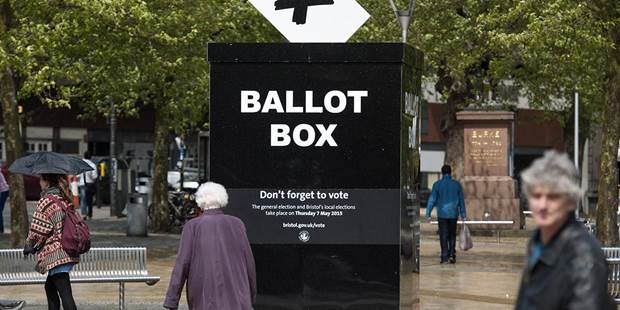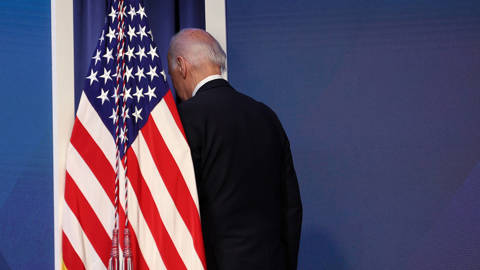Re-Winning Europe
The European Parliament elections have created an unprecedented opportunity for reform. Citizens have voiced a clear demand for a serious re-think of the European project. The challenge and duty of European leaders today is to supply this change.
Javier Solana rightly points out that EU institutions will have to get a new lease on life. I certainly agree that we have to reinvent the institutions for the task at hand, namely restoring trust in the European project and ensuring that Europe's convergence machinery delivers growth. Solana also goes on to argue that it is crucial to set the right priorities and move on from there. This is where he stops.
Let me take over where he left off and flesh out a number of concrete recommendations for boosting the EU’s efficiency (the functioning of relations within and among its bodies), legitimacy (the democratic accountability of its institutions) and flexibility (ensuring that the interests of the internal market, of euro and non-euro member states alike, is preserved).
Let’s consider the main institutional players in turn, starting with the Commission.
There is plenty of room for change within the Commission. Its structure should be decided by its president only after the European Parliament approves the new president and his/her program.
At the beginning of the legislature’s term in office, the Commission should submit a five-year legislative plan to the European Parliament and the Council. This plan should focus the dialogue between the Commission and the European Parliament, which should also promote the use of the parliament’s own reports.
Once the European Parliament approves the program, the Commission’s president can then effectively mandate various clusters within the Commission to act on that basis. This new approach would also have an impact on the way hearings are organized with potential commissioners.
In a Commission of 28 commissioners, one could envisage 8-10 clusters, chaired by vice presidents of the Commission. Each cluster could bring together 2-4 portfolios.
The collegiality rule of decision-making should not be changed, but clusters of commissioners should present their common position for all to decide. In cases where there is no agreement among the cluster commissioners, the president should decide.
In addition to clusters, temporary task forces – for youth unemployment, the new treaty, external borders, etc. – could be envisaged. Task-force heads could be ex-directors general reporting to clusters.
The Commission has a key role to play when it comes to keeping the EU united in the face of increasing differentiation. If the proposals put forward by the Commission were open to the participation of the 28 EU members, the risk that a multi-tier Europe emerges would be significantly reduced. One helping hand could certainly come from having a form of opt-in blueprint, which could be used to define the participation of non-euro opt-ins into reforms of the economic and monetary union. The enhanced cooperation method available under current treaties could be used before a fully-fledged blueprint is adopted.
Turning to the European Parliament, we all know that it has received a considerable boost following the adoption of the Treaty of Lisbon, which effectively turned it into a co-legislator for most issues. The lingering problem is that decisions in Europe need double legitimation, national and European. Though the dual-citizenship concept is embedded in the Treaty of Lisbon, we still lack institutional opportunities to strengthen relations between national parliaments and the European Parliament. While the new platforms for inter-parliamentary cooperation, committees, and meetings do provide a useful forum for information exchange and best practices, the fact that they are not decision-making bodies often deters lawmakers from participating.
The Early Warning Mechanism on subsidiarity also suffers from a number of shortcomings. It most likely requires more time, but we must remember that the new mechanism is a learning process, and that, sooner or later, it will work.
Along with legitimacy, flexibility is yet another serious challenge that reflects on the European Parliament’s work. The parliament’s role in light of increasing differentiation has been a subject of intense debate for a while now. In 2012, for example, the idea of a separate parliamentary committee or subcommittee devoted exclusively to EMU matters was floated. A series of discussions followed, with no concrete decisions taken and the matter finally deferred for the deliberation of the new legislature.
Finally, a few words on the European Council, which has acquired a substantial role with the implementation of post-crisis reforms. We seem to forget at times that, according to Article 15(1) of the Treaty of Lisbon, the Council does not have a legislative function. Despite this, the Council has become increasingly involved in legislative matters. It has a decisive say when it comes to the negotiating mandate that it brings to trilateral negotiations. The Council was also at the heart of the establishment of important intergovernmental agreements, such as the Fiscal Compact, the European Stability Mechanism, and the Single Resolution Fund.
The European Council’s growing powers come with clear legitimacy concerns, as its decisions often bypass the European Parliament entirely.
We understand, of course, that these developments are a consequence of the limits of the community method, which meant that many post-crisis reforms lacked an adequate legal basis. Given the circumstances, reaching out to the intergovernmental method appeared to be the only feasible solution. This debate has certainly brought into focus the need for a new Treaty.
To face effectively these challenges, the EU’s institutional machinery must shift into high gear. For more insight into how to this should be done, have a look at the Center for European Policy Studies report on institutional reform, produced by a high-level group that I chaired, available for download here:
http://www.ceps.be/content/ceps-high-level-group-institutional-reform











